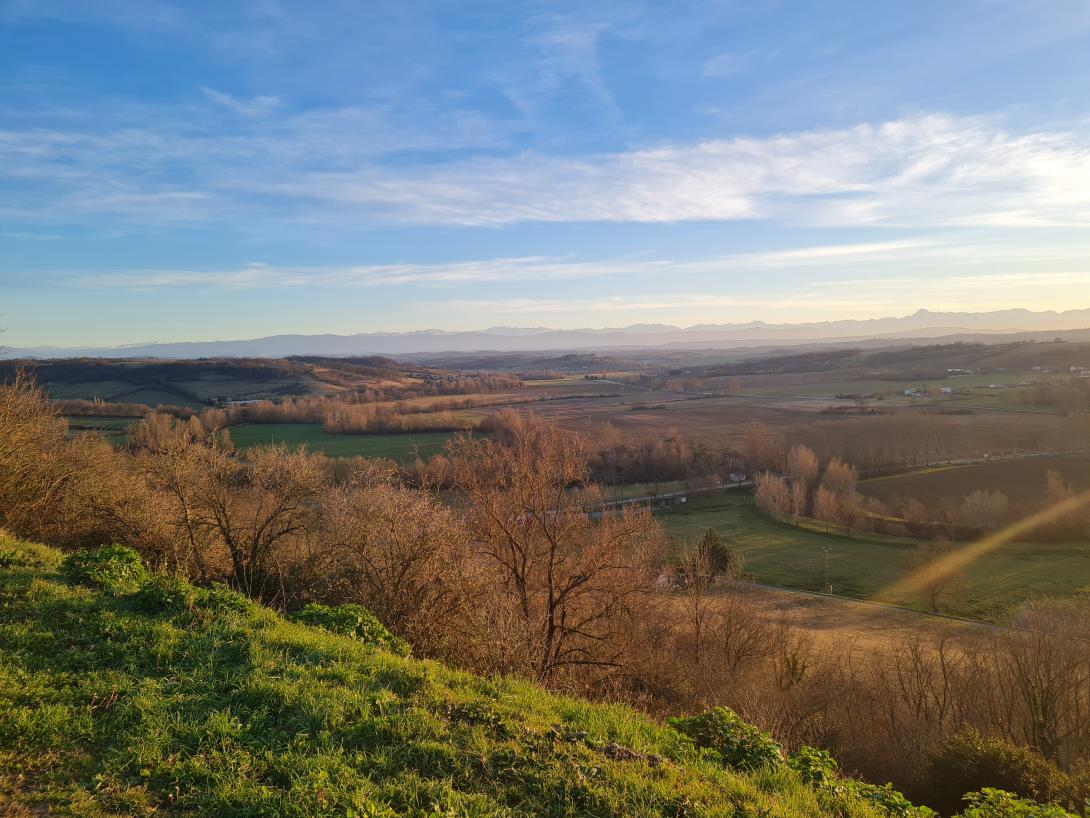Lèze basin, FR - 23 January 2025
On 23 and 24 January 2025, the first SpongeLab workshop was held in the Lèze pilot basin, more precisely in the Rosé sub-basin. Participants included farmers, local councilors, the Agriculture Chamber of Ariège, the Ariège Conservatoire d'Espaces Naturels, the Syndicat Mixte Interdépartemental de la Vallée de la Lèze and the Syndicat Départemental des Eaux et de l'Assainissement.
Led by SpongeScapes partner Leibniz University Hannover (LUH), SpongeLab consists of a series of workshops focused on co-designing a sponge strategy at the landscape scale. For the Lèze river basin, the Rosé sub-basin was chosen as a pilot area for this work.
The aim of this first workshop was to introduce the SpongeLab process and the geodesign approach to French stakeholders.
Two days of workshops and site visits
On Thursday, participants identified and prioritised local problems - floods, droughts, erosion and mudslides - and discussed their causes and possible solutions. This collaborative approach allowed stakeholders to share perspectives, constraints and goals.
On the second day, participants visited local sites where sponge measures have already been implemented, including newly planted hedgerows to capture mud running of from agricultural fields on slopes and grass strips to improve water quality. These measures not only address soil erosion, but also provide co-benefits such as increased biodiversity and water retention.
Next steps
The evidence gathered will be fed into LUH's decision support model (a geodesign tool). Geodesign uses participatory geospatial technology tools to help stakeholders understand the impacts of different future scenarios and evaluate them against their own priorities and needs.
Future workshops will explore different scenarios. Participants will develop and test landscape-scale sponge strategies and observe their immediate impact on water retention, biodiversity and more, thanks to the Geodesign tool.
The aim of this series of workshops is to explore how the sub-basin could develop between now and 2050, depending on whether or not sponge measures are implemented.
The Lèze case study is one of the 14 SpongeScapes case studies and one of the two SpongeLabs.
Find out more: https://www.spongescapes.eu/article/case-study-sponge-labs/03-leze-fr
